$17 million of federal funding for community improvement projects awarded through ADECA
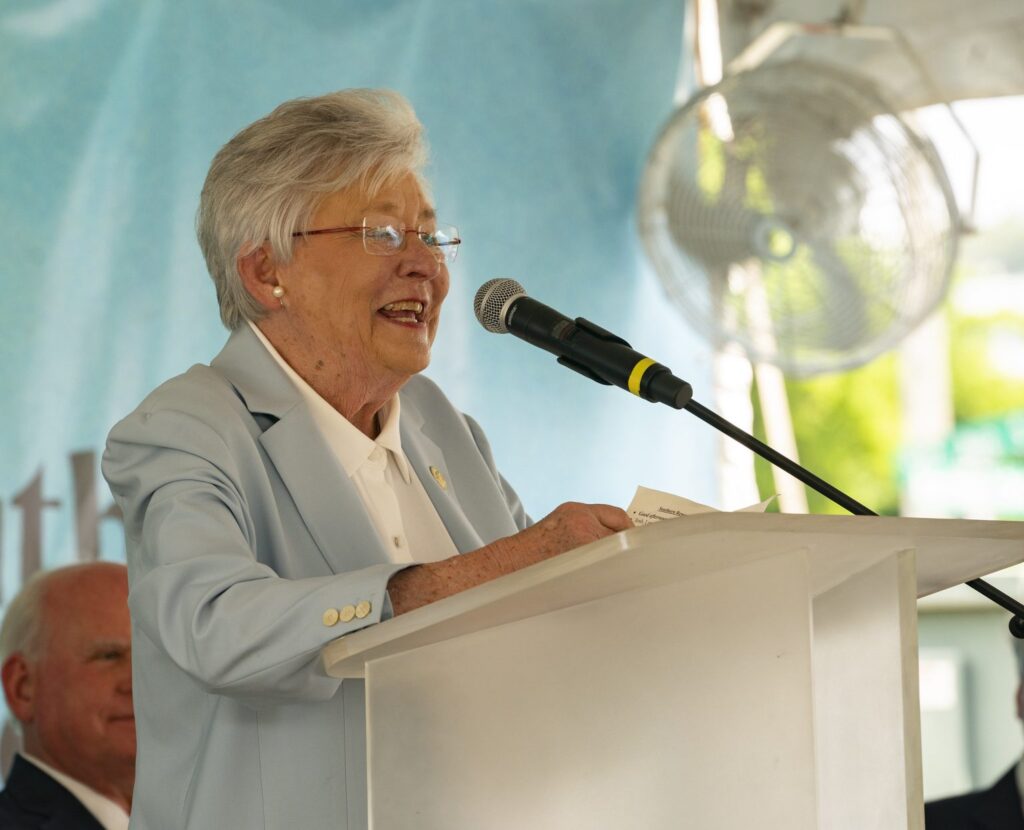
The State has announced $17 million in Community Development Block Grants (CDBGs) to benefit Alabama cities, towns and communities. The grants have been awarded to 41 Alabama towns, cities, and counties. The grants cover a range of community needs, including water and sewer upgrades, street resurfacing, fire station construction, fire trucks, and upgrading parks. “Probably no other grant program in Alabama has as widespread an impact or is as celebrated as Community Development Block Grants,” Governor Kay Ivey said about the grants. “These grants help local governments take on much needed projects that make communities safer and better places to live. I am honored to award these grants that will help so many communities across our state.” The Alabama Department of Economic and Community Affairs administers the grants with funds provided by the U.S. Department of Housing and Urban Development (HUD). “The Community Development Block Grant Program is a competitive process in which local governments examine their most pressing needs and submit applications,” ADECA Director Kenneth Boswell said. “ADECA is pleased to join Gov. Ivey in awarding these grants for projects that will improve the quality of life in these 41 communities. While there are simply not enough funds to award a grant for every project submitted, all applicants should be commended for their dedication to serving their communities.” According to the HUD website, “Eligibility for participation as an entitlement community is based on population data provided by the U.S. Census Bureau and metropolitan area delineations published by the Office of Management and Budget. HUD determines the amount of each entitlement grantee’s annual funding allocation by a statutory dual formula which uses several objective measures of community needs, including the extent of poverty, population, housing overcrowding, age of housing and population growth lag in relationship to other metropolitan areas.” CDBGs are awarded annually in several categories to ensure local governments of all sizes have opportunities to be awarded funds. Categories include: Small City – populations of 3,000 and below. Large City- populations of 3,001 and above. County – supporting primarily unincorporated areas. Community Enhancement – special projects extending beyond infrastructure improvements. Planning Fund – projects that enable governments to map out goals and long-range plans. According to ADECA the grants awarded by region include: North Alabama Attalla – $500,000 The city plans to upgrade its sewer system by replacing damaged terra cotta (clay) pipes and manholes. Improvements will be conducted in two areas of the city. Blount County – $300,000 The county plans to use funds to make road improvements in the Sugarland Lake Community. Blountsville – $400,000 The town plans to upgrade streets and sewer lines. Among streets scheduled for improvements are Walter Street, Hendrix Street, Center Street and Lee Street. Courtland- $400,000 Funds will be used to improve its water system by upgrading deteriorated and undersized water lines to improve service for its customers. Detroit – $400,000 The town will use funds to construct a new fire and rescue station with two bays. The station will be located on U.S. Highway 17. Hamilton- $500,000 The city will use funds to improve city water services for about 1,600 residents in the Mitchell Station area by installing a new booster pumping system. Hammondville- $400,000 Funds will be used to repair and resurface several roads in the town including Palmer Road, Haney Road and Winston Drive. Littleville – $400,000 CDBG funds will be used to upgrade water lines by expanding their size to increase water pressure and help lead to lower home insurance rates because of better firefighting capabilities. Red Bay – $500,000 The city will provide drainage improvements along 4th, 5th, 6th, 7th, 9th and 10th avenues in the northwestern part of the city. Town Creek – $400,000 The town will use funds to upgrade its sewer system to prevent back up of sewage into houses and sewer overflows. Central Alabama Bullock County – $500,000 The project will resurface and improve 16 roads throughout the county. Demopolis – $500,000 The city plans to make street and drainage improvements along Fairview Avenue and Cedar Crest Drive. Eclectic – $400,000 The town will use CDBG funds to upgrade its waste-water treatment facility to properly serve current households and businesses and handle growth coming into the town. Eufaula- $400,000 Funds will be used to demolish and clear approximately 55 abandoned and dilapidated structures in and around the core of the city. Franklin – $400,000 The town will use funds to demolish and clear 17 dilapidated structures throughout the town. Geiger – $372,753 The town plans to resurface five streets and improve drainage on some. Streets scheduled for improvements are Kirkland Boulevard, Payne Street, Pinson Road, Smith Street, Ninth Street and Martin Luther King Circle. LaFayette – $40,000 Funds through the CDBG Planning Grant Program will be used to help the city update its comprehensive plan to develop achievable goals for the city involving growth, revitalization and economic development. Marion — $500,000 Funds will be used to resurface Lincoln Heights and several side streets benefiting about 175 people. Moundville – $500,000 The city proposes to construct new sidewalks in the CC Loop and Alabama Avenue area and install storm water drainage in the area of Market and Griffin streets. Munford – $328,100 Funds will be used to demolish a portion of the old Munford High School and clear the debris in preparation for future redevelopment of the town’s core area. Roanoke – $500,000 CDBG funds will be used to provide drainage improvements in two areas of the city, including along Mulberry and Piedmont streets and College and Cannon streets. Shorter – $400,000 The town plans to purchase a pumper firetruck to enhance the town’s firefighting capabilities and help save properties and lives. Sumter County – $500,000 The county plans to provide public water services to nearly 160 households in the Ward and Siloam communities in southern Sumter County. Tuskegee- $500,000 The city will use funds to make water and street improvements along North Church Street. The city will make curb, gutter and sidewalk repairs and upgrade water lines to
Governor Kay Ivey required medical attention on eve of election
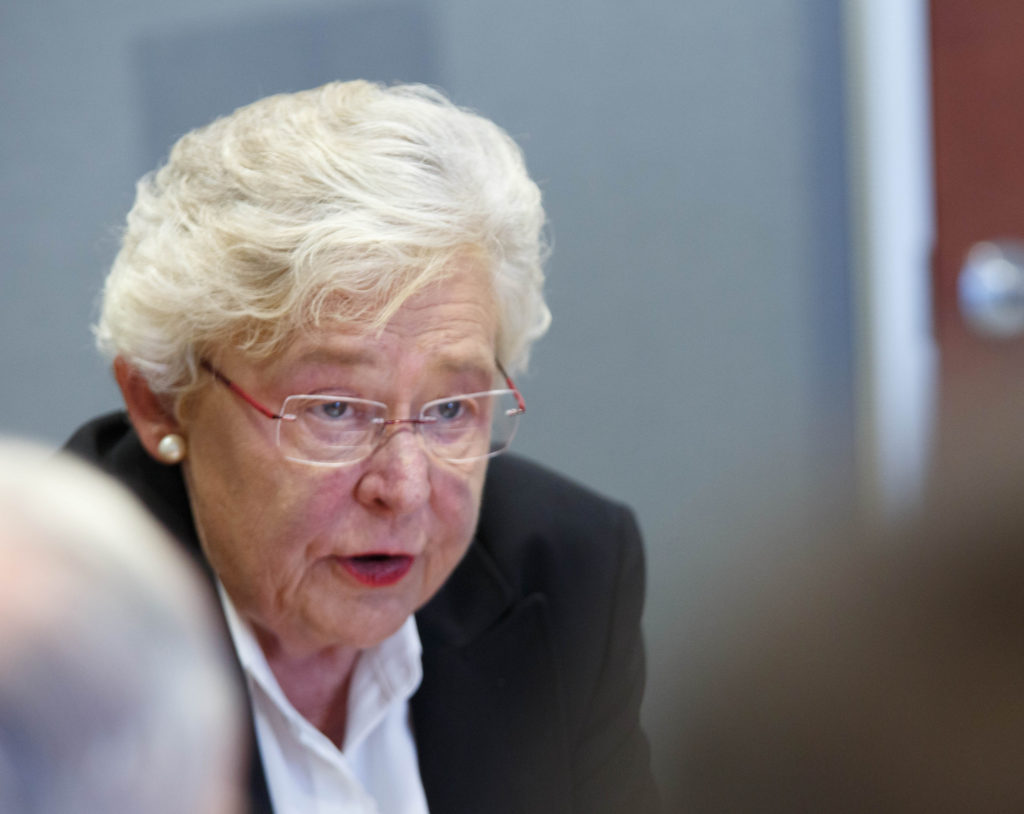
Governor Kay Ivey was campaigning in the final days leading up to Tuesday’s general election for congressional candidate Caroleene Dobson when paramedics had to be called to treat her for what her office is saying was dehydration. The event was being held at Sweet Creek Farm Market in Pike Road, on Sunday when paramedics were called. In a statement provided to AL.Com, Ivey’s office said, “While campaigning for Caroleene Dobson at an event this evening, the governor got dehydrated. She received fluids and was evaluated on site out of precaution. She immediately felt better and is at home doing well this evening.” ABC’s Channel 8, WAKA, has released a video of the incident. In it, you can see Ivey become shaky and unsteady before receiving medical treatment. Ivey, who is 80 years old, announced in September 2019 that a routine evaluation found lung cancer. She released a public statement three weeks after her diagnosis and underwent three rounds of radiation treatment at UAB before being cleared by doctors in January 2020. At the time, Dr. Alex Whitley of Central Alabama Radiation Oncology, the governor’s physician, released a statement saying, “Governor Ivey is now three months removed from Stereotactic Body Radiotherapy Treatment (SBRT) for her Stage I lung cancer. She had a follow up surveillance imaging that demonstrates an excellent response to treatment with no concerning features. She will continue on routine surveillance imaging, but I consider Governor Ivey to be cured.” In 2022, rumors circulated about Ivey’s health after a prolonged absence from public events; when interviewed by WVTM 13, she responded by saying, “Between the rumor mills and some of you guys in the media, it seems like some of you just want to will these rumors into reality and existence.” She said, “Every day, I give thanks to God for giving me a clean bill of health.” When asked whether she had undergone any procedures requiring an overnight hospital stay in the last month, she repeated the same answer she had just given nearly verbatim before stressing that she was in good health. Ivey’s office reported that she returned to the state capitol on Monday.
Governor Kay Ivey applauds DOJ indictment of two Sudanese nationals in Alabama cyberattack

Governor Kay Ivey on Wednesday applauded the federal indictment of two Sudanese nationals after their involvement in a cyberattack on Alabama, as well as hospitals, government facilities and other critical infrastructure around the world. Earlier this month, the U.S. Department of Justice unsealed that a federal grand jury charged two individuals with operating and controlling Anonymous Sudan, an online cybercriminal group responsible for tens of thousands of distributed denial of service (DDoS) attacks. In March 2024, pursuant to court-authorized seizure warrants, the U.S. Attorney’s Office and FBI seized and disabled Anonymous Sudan’s powerful DDoS tool, which the group allegedly used to perform DDoS attacks, and sold as a service to other criminal actors. Ahmed Salah Yousif Omer, 22, and Alaa Salah Yusuuf Omer, 27, were both charged with one count of conspiracy to damage protected computers. Ahmed Salah was also charged with three counts of damaging protected computers. “Criminal activity of any kind, including that coming from outside of our state, will not be tolerated in Alabama,” said Governor Ivey. “I am thankful for the quick action of our Office of Information Technology, and I applaud the indictment of these individuals responsible for this attempt to disrupt state government and many other operations around the world. Any individual or organization who attempts to harm our state, our citizens or our way of life will be subject to prosecution to the fullest extent of the law.” Alabama state government websites were subject to a DDoS attack in addition to sites around the nation. Immediately upon discovering a cyber event was underway, the state responded quickly and decisively to ensure no access or damage occurred to the state’s network, resources and data, or infrastructure. While this indictment is an allegation of criminal activity and the defendants are presumed innocent until proven guilty, these two individuals will face statutory maximum sentences ranging from five years to life in federal prison, if convicted of all charges. According to a press release by the U.S. Department of Justice, “An indictment is merely an allegation, and the defendants are presumed innocent unless and until proven guilty beyond a reasonable doubt in a court of law. If convicted of all charges, Ahmed Salah would face a statutory maximum sentence of life in federal prison, and Alaa Salah would face a statutory maximum sentence of five years in federal prison. The investigation of Anonymous Sudan was conducted by the FBI’s Anchorage Field Office, the Defense Criminal Investigative Service, and the State Department’s Diplomatic Security Service Computer Investigations and Forensics Division. Assistant United States Attorneys Cameron L. Schroeder and Aaron Frumkin of the Cyber and Intellectual Property Crimes Section are prosecuting this case, with substantial assistance from Trial Attorney Greg Nicosia of the National Security Division’s National Security Cyber Section. Assistant United States Attorneys Schroeder and Frumkin, along with Assistant United States Attorney James Dochterman of the Asset Forfeiture Section, also obtained the seizure warrants for computer servers constituting Anonymous Sudan’s DCAT tool. The DOJ Criminal Division’s Office of International Affairs, the FBI’s International Operations Division and Behavioral Analysis Unit, and the U.S. Attorney’s Office for the District of Alaska aided in this investigation. These law enforcement actions were taken as part of Operation PowerOFF, an ongoing, coordinated effort among international law enforcement agencies aimed at dismantling criminal DDoS-for-hire infrastructure worldwide, and holding accountable the administrators and users of these illegal services. Akamai SIRT, Amazon Web Services, Cloudflare, Crowdstrike, DigitalOcean, Flashpoint, Google, Microsoft, PayPal, SpyCloud and other private sector entities provided assistance in this matter.” The unsealed indictment can be read on the DOJ’s website. “We will always do what is required to protect everyone who calls Alabama home,” added Governor Ivey.
Kay Ivey demands answers on migrants flown to states
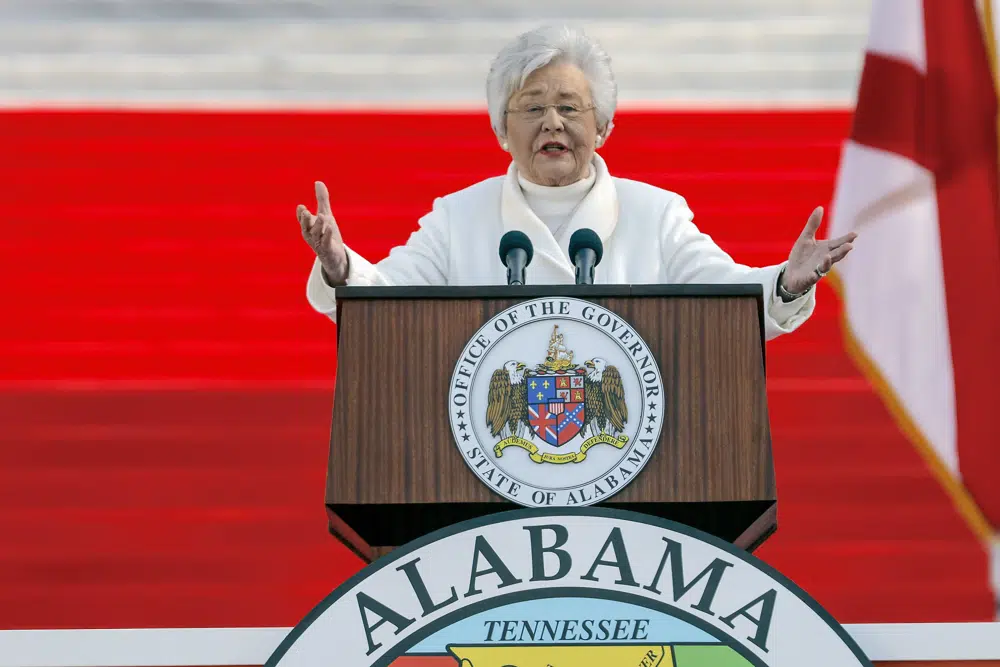
Kay Ivey has joined a group of twenty-four additional Republican governors who want to know how many illegal foreign nationals have been flown into their states by a Biden-Harris administration plan they argue is burdening their residents and creating an unsafe environment. Those being flown in have arrived through more than a dozen parole programs created by U.S. Department of Homeland Secretary Alejandro Mayorkas. The governors only inquired about one: the CHNV parole program, created to fast track previously inadmissible citizens of Cuba, Honduras, Nicaragua and Venezuela moving into the country. According to the latest U.S. Customs and Border Protection data, 530,000 CHNV parolees were released into the country in the past year, in addition to 813,000 foreign nationals processed into the country from all over the world through a CBP One app. Attorneys general from multiple states sued to stop them, arguing they are illegal. The U.S. House impeached Mayorkas for them and other actions they argue created the border crisis. The 1.3 million inadmissables released into the country are among nearly 14 million illegal border crossers reported since fiscal 2021, the greatest number under any administration in U.S. history. In a letter to President Joe Biden and Vice President Kamala Harris, the 25 governors described how the CHNV parole program negatively impacted their communities and expressed bewilderment over no communication provided about their “arrival times, duration of residency, legal status, and location.” The influx and lack of communication “has created considerable confusion and alarm among local officials and the general public. In the absence of direction from DHS, law enforcement and municipal leaders have often been left to rely upon news reports and social media posts to determine size and location of incoming migrant populations in order to assess what impact they may have on already limited government services including local public schools,” they said. “The apparent dumping of migrants into our cities and small towns with no advance notice has not only sowed mistrust and fear among the public, but it has also placed the migrants themselves at potential of physical harm. After being met with understandable skepticism from the communities in which they are now living, migrants have become fearful to interact with the public. This isolation has created a ripe environment for their exploitation and abuse.” The governors requested the information they said to best protect illegal foreign nationals who might be targeted for abuse by cartel operatives or are already victims of human smuggling and trafficking, and to protect their citizens. “Without information about the migrants’ sponsors or the location and employment status of migrants, state and local law enforcement are extremely limited in their abilities to investigate potential exploitation of migrants and the possibility of their victimization from human trafficking,” they said. “As chief executives of our states directly responsible for the safety of our citizens and those who reside within our borders,” they said, they are demanding “a full accounting from the Biden-Harris Administration and DHS.” They requested information about the location of each parolee in their state, the vetting process conducted for each parolee, the name and location for each sponsor granted guardianship of parolees, and the system in place to monitor them. The request came after the DHS Office of Inspector General issued multiple reports detailing the administration’s repeated failure to vet them and inability to monitor them after their release. The OIG also expressed alarm that federal agencies were flying illegal foreign nationals on domestic flights who hadn’t been properly vetted and have no identification. It also came after U.S. Sen. Ted Cruz, R-Texas, demanded answers about how many were being flown and housed in airports, raising concerns about terrorist threats. An unknown number of illegal foreign nationals arriving in their states “potentially in need of state and local services” was done “without our consent, any advance notice or resources,” the governors said. “Accordingly, we request your administration furnish our states complete information about the location and status of migrants being directed to our communities.” Those demanding answers, including Kay Ivey were Mike Dunleavy (AK), Sarah Sanders (AR), Ron DeSantis (FL), Brian Kemp (GA), Brad Little (ID), Eric Holcomb (IN), Kim Reynolds (IA), Jeff Landry (LA), Tate Reeves (MS), Mike Parson (MO), Greg Gianforte (MT), Jim Pillen (NE), Joe Lombardo (NV), Chris Sununu (NH), Doug Burgum (ND), Kevin Stitt (OK), Henry McMaster (SC), Kristi Noem (SD), Bill Lee (TN), Greg Abbott (TX), Spencer Cox (UT), Glenn Youngkin (VA), Jim Justice (WV), and Mark Gordon (WY). Republished with permission from The Center Square.
Paul DeMarco: Kay Ivey ensures Alabama assist Hurricane recovery efforts in Appalachia
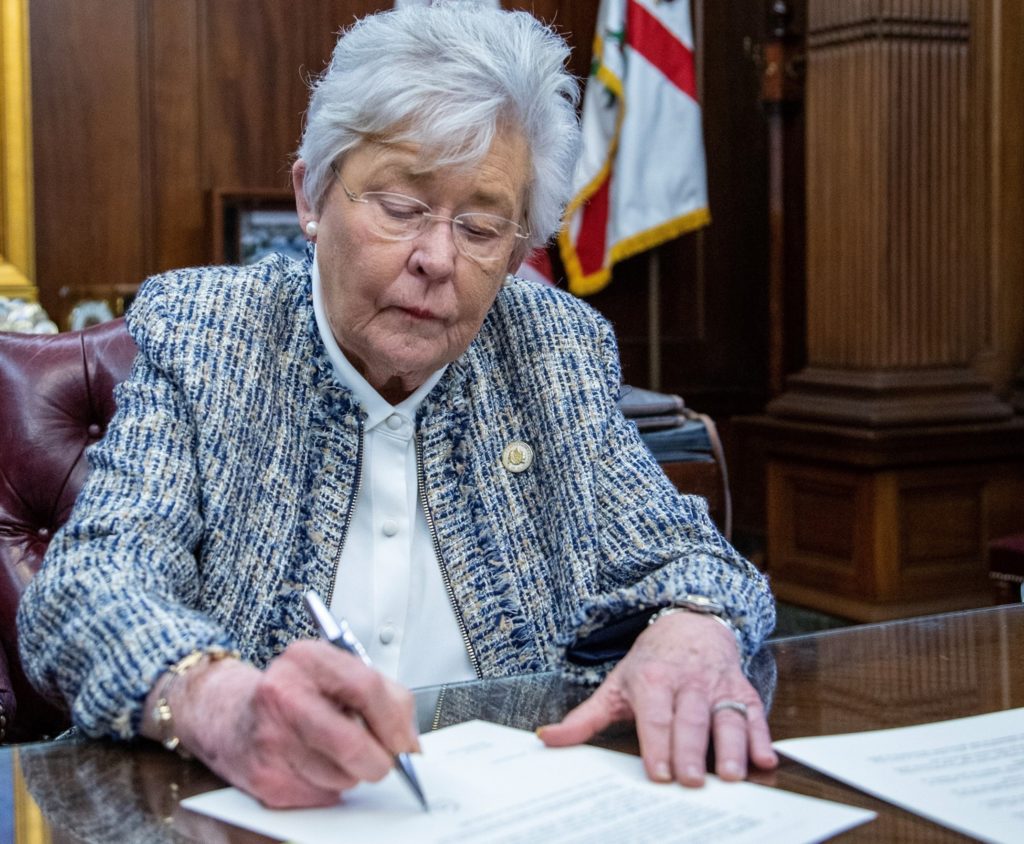
$30 million allocated for Coastal Alabama projects
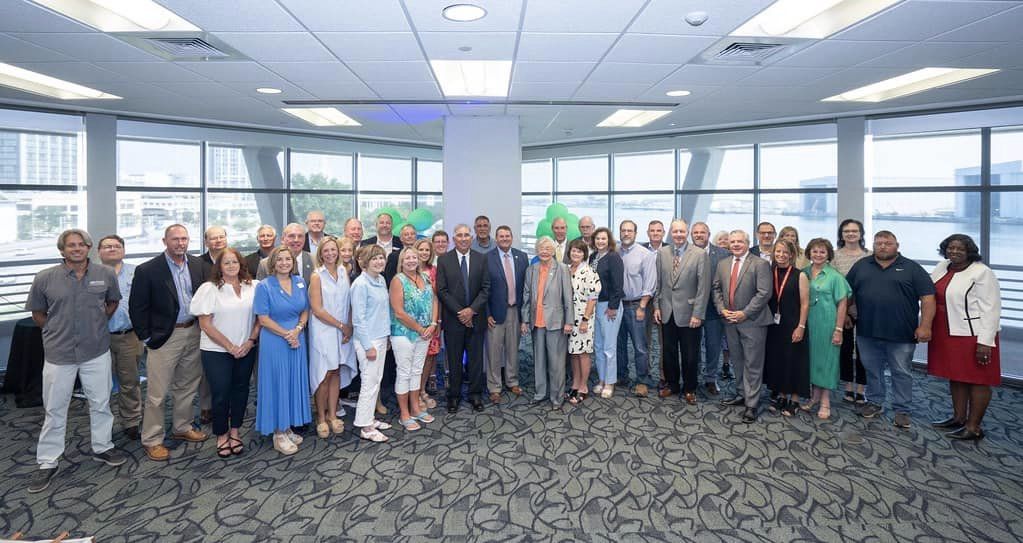
Governor Kay Ivey and Alabama Department of Conservation and Natural Resources Commissioner Chris Blankenship announced approximately $30 million for 25 projects in Coastal Alabama. The projects will be funded by the Gulf of Mexico Energy Security Act of 2006 (GoMESA). According to the Department of Interior website, “The Office of Natural Resources Revenue disburses GOMESA revenue to state and local governments for each of the four GOMESA states. The numbers below show the disbursements to the states and their local governments. Disbursements are made the year following the year of receipt and are subject to sequestration.” Alabama Recipient Fiscal Year 2024 Disbursement 2009-2023 Disbursements State of Alabama $39,864,143 $190,647,881.07 Baldwin County $4,671,961 $21,960,919.79 Mobile County $5,294,074 $25,701,097.66 Alabama Total $49,830,178 $238,309,898.52 These projects focus on environmental education and outreach, sewer and stormwater infrastructure, water quality improvements, recreational access improvements, and other important projects that are included in the original intent and authorized use of GoMESA funds. “I am thrilled to be joined today by many of our local leaders to announce 25 GoMESA-funded projects,” said Governor Ivey at the press event. “Working closely with Commissioner Blankenship and his team at the Alabama Department of Conservation and Natural Resources, we have secured more than $30 million dollars to fund the projects that improve and beautify this region we all love. With this announcement, more than $210 million dollars in GoMESA projects have been awarded during the Ivey Administration.” “One of the main themes for this year’s projects is Environmental and Nature Education and Outreach. Teaching future generations about the importance of protecting Alabama the Beautiful and all her natural habitats, wildlife and fish is critical. Several of these projects will make improvements at museums, education facilities, aquariums and along the waterfront – all to educate Alabamians and our visitors from far and wide,” added Governor Ivey. According to the Governor’s office, “GoMESA provides funding for the four Gulf Producing States and their eligible coastal political subdivisions (CPS) to share 37.5 percent of the qualified revenues from Outer Continental Shelf (OCS) oil and gas leases issued since December 20, 2006. With approval from the Governor’s Office, the Alabama Department of Conservation and Natural Resources administers the funds. Mobile and Baldwin Counties receive separate GoMESA disbursements directly from the Federal government.” “The GoMESA projects announced today will go a long way to continuing to improve the environment and quality of life in Coastal Alabama. I appreciate the work of the staff at the Department of Conservation and Natural Resources and our project partners as they work to leverage GoMESA funded projects with the good work happening with Deepwater Horizon Oil Spill projects and other funding sources,” said Alabama Department of Conservation and Natural Resources Commissioner Chris Blankenship. “The nature-based education, water quality improvements, and public access expansion projects announced today will have a long term positive impact.” 2024 State of Alabama Funded GoMESA Projects City of Creola Park, Conservation and Education Project $1,000,000 Exploreum Traveling Exhibit Gallery Refurbishment $829,012 Dauphin Island Programmatic Dredge Permit $300,000 Loxley Municipal Park Wetlands Acquisition Project $650,000 Fairhope Flying Creek Nature Preserve Phase II $1,328,400 Summerdale Miracle League Ballfields $1,538,000 Dauphin Island Middle Beach Access Improvements $1,500,000 Orange Beach Schools Sea, Sand, and Stars Education Project $979,864 Meaher State Park Headquarters Camp Store Project $1,100,000 Mobile County Cedar Point Boat Ramp Phase II $2,753,440 Dauphin Island Sea Lab’s Manatee Sighting Network $182,461 Town of Perdido Beach Comprehensive Drainage Improvements $307,670 National Maritime Museum Improvements (Mobile) $2,250,000 Saraland Water and Sewer System Upgrades $1,523,700 Blakeley Park Waterfront Access Improvement Project $1,970,500 Mobile Riverfront Park Enhancements – Phase II $3,023,667 Dauphin Island Sewer Collection System Improvements 2024 $2,965,981 Daphne Sewer Lift Station Permanent Bypass Pumps – Priority 1 $499,500 Daphne Sewer Lift Station Permanent Bypass Pumps – Priority 2 $445,500 Mobile County/TNC Coden Bayou Land Acquisition Project $753,575 City of Prichard Sweeney Lane Bridge $650,000 Honor Park – A City of Spanish Fort Project $3,000,000 Alabama Aquarium Improvements (DISL) $200,000 USA Lower Alabama Beach Education Facility $250,000 GoMESA Administration $398,641 $30,399,911
Paul DeMarco: Governor Kay Ivey should call a Special Session to address crime

Violent crime in our state continues to get worse. In Birmingham alone, homicides are up by 15 percent after the first six months of the year. And look at Montgomery, where homicides have increased by 93 percent over the past five years. There is no question public safety has become the number one problem in this state and is not being addressed at the local level. Thus, it will be up to state leaders to strengthen the Alabama’s criminal justice system. This past Spring, Louisiana Governor Jeff Landry called a special session to address the horrific crime rates that have made some of the cities in his state some of the most dangerous places to live in the country. State leaders understood that they could not wait any longer to address the problem, as it was just creating more crime victims. Louisiana lawmakers successfully passed legislation that gave more tools to law enforcement and prosecutors to go after the bad guys. Alabama should follow suit. Governor Kay Ivey should work with Attorney General Steve Marshall and Alabama legislators to approve new laws to deter crime and punish those that wound endanger the public. Now is the time to bring the stakeholders in the criminal justice system together to study entire system from crime, to arrest, to sentencing and incarceration. Then those recommendations should be the basis of bills to propose to take on the violent crime in the state. Most importantly, there should be truth in sentencing implemented in this state. Just as in Louisiana, Alabama leadership should address crime and public safety sooner rather than later. Paul DeMarco is a former Alabama House of Representatives member and served as Chair of the House Judiciary Committee. He can be found on X, formerly Twitter, at @Paul_DeMarco
Paul DeMarco: Busy Alabama 2024 Legislative session finally comes to an end
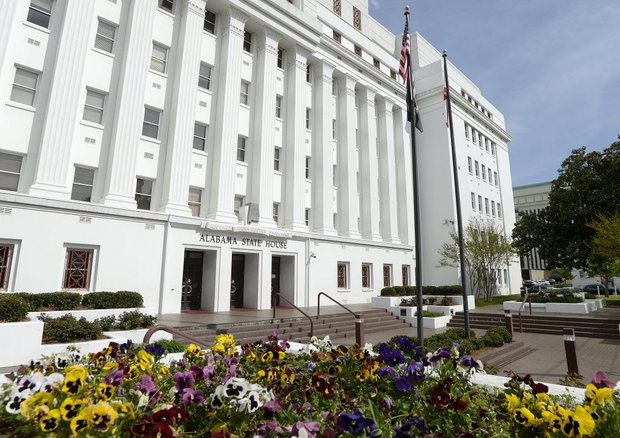
Now that everyone is back home after another session of the Alabama Legislature, we can look back to evaluate what lawmakers did and did not get done. There is plenty of good, bad and ugly that happened the past few months. There were a number of bills that will increase public safety that became law and a few that would have weakened the justice system that failed. Thank goodness there are some legislators who listened to their constituents who made it clear that public safety must be the foremost priority. No question though, lawmakers will have to fight efforts by progressive advocacy groups to release more violent felons back on the streets in next year’s session There were record budgets that were appropriated for the general fund and public education that were approved that may be the last for a while with the questions about the economy making legislators nervous for the future. There has been a lot of money put in rainy-day accounts that may come into play soon. There was major education reform and election integrity bills that passed that were major wins for the citizens of the state. These were a long time coming but finally gained majority votes to make it to the governor’s desk. Of course, the controversy related to in vitro fertilization was addressed very quickly by state representatives and senators. We will see if that issue is resolved or will lingering questions be addressed in coming sessions. But what has gotten the most attention was the Alabama Legislature came one vote away from approving a Constitutional Amendment to allow voters to decide on whether they would approve the legalization of gambling in the state. This debate has been going on for decades but came the closet in 25 years to positioning the state to allowing gaming in Alabama. There is always the possibility that Governor Kay Ivey could call a special session this year, but it is unlikely unless some major issue that is time sensitive comes up. For now everyone is back home, but there will still be a lot of discussion on the past legislative session and what it will mean for the next one in 2025. Paul DeMarco is a former member of the Alabama House of Representatives and Chairman of the House Judiciary Committee. He can be found on X formerly Twitter at @Paul_DeMarco
Paul DeMarco: While New Year upon us, Alabama state leaders must to continue to address past issues

A new year always brings hope for a fresh start in one’s life. For Alabama state leaders, 2024 requires going back to the basics to address chronic issues that have plagued the state, such as crime, education, and poverty. State representatives and senators made excellent progress in passing bills that strengthened the Alabama criminal justice system. Laws to stiffen penalties for fentanyl trafficking, retail theft, and gang violence became law. In addition, the state’s generous good time laws were amended to reduce the amount of time inmates could earn for an early release from prison. This session lawmakers need to address the problems with the state’s work release program that has allowed felons convicted of murder out unsupervised on the streets. Legislators also have to stop the slew of bills that have been pre-filed to gut the current parole board’s ability to keep prisoners behind board who had been convicted of heinous crimes. Week after week, the headlines in 2023 have reported the violence in our state which should focus legislators on making public safety a priority. As for education, this past year a historic $8.8 billion education budget and $2.8 billion supplemental allocation were passed to fund state public education. The monies have been used to pay for additional math and science academic enhancement, pre-k, teachers, and salaries. Even with the massive infusion of money, the state is still ranked low in scholastic achievement, and this past year, the Alabama Department of Education reported that overall public schools actually declined from the year before. Thus, in this upcoming session, there will be a big push for education reform that includes school choice. The question will be what it actually looks like and how, ultimately, it will make a difference in our state. Finally, we are three years past when Covid was at its peak, and the Nation was shut down. Like other states, our small businesses and their employees suffered through the mandated lockdowns. Yet, the economy is now thriving as Alabama continues to attract new companies and existing businesses grow. Alabama Governor Kay Ivey reports that there has now been $42 billion in new capital investment that has led to both the most people employed in state history and the lowest unemployment. The state continues to receive allocations for its economic development efforts. The strong economy has lead to increased revenue, which lawmakers have used to fund more state services. And there are for hire signs everywhere you go, folks have to just agree to take those jobs. And while we approach a new year, there are plenty of reasons to believe 2024 will be another good one for Alabama business owners and their employees. Thus, while there is optimism for the new year, Alabama state leaders must address the chronic issues are state has to move our state forward. Paul DeMarco is a former member of the Alabama House of Representatives and can be found on X formerly Twitter at @Paul_DeMarco
Today is Alabama Day

On December 14, 1819, Alabama became a state. While not an official state holiday, Alabama Governor Kay Ivey (R) did issue a proclamation declaring Thursday – Alabama Day. “For 204 years, our great state has stood as a testament to the enduring spirit of her people. I am honored to proclaim today as Alabama Day,” the Governor said on X. Congressman Barry Moore (R-AL02) also recognized the historical significance of Alabama Day on his X account. “On this day 204 years ago, Alabama became the 22nd state in our union. Happy National Alabama Day!” Moore wrote. Alabama Court of Criminal Appeals Judge Richard Minor also posted about the day and included maps of the first judicial districts in the then-new state. “204 years ago today Alabama gained statehood,” Judge Minor wrote on X. “Before that, she was a territory. And to think, judicially we started with only 5 judicial circuits, and the 5 circuit judges made up the Alabama Supreme Court. And each had life tenure.” “On this day in 1819, Alabama was admitted to the Union, becoming the 22nd state in the U.S.A. Wishing all of our citizens a Happy Alabama Day!” said the Alabama Republican Party on X. “Happy National Alabama Day!” On this day in 1819, Alabama became the 22nd state to join the union,” Congresswoman Terri Sewell (D-Selma) said on X. “Since then, the people of our state have played a pivotal role in shaping the history of our nation.” To connect with the author of this story or to comment, email brandonmreporter@gmail.com.
Gov. Kay Ivey visits Atmore on her statewide broadband tour

On Wednesday, Alabama Governor Kay Ivey (R) visited Atmore Community Hospital in Escambia County on the third stop on her broadband tour. Ivey stressed the importance of high-speed internet in allowing Alabamians to access telehealth services while highlighting the progress in broadband projects across the state. “Broadband availability is not just for our convenience – it is a lifeline, particularly evident in telehealth services,” said Gov. Ivey. “For thousands of Alabamians in rural areas, telehealth bridges the gap to medical facilities, and without broadband, this vital resource remains out of reach for many,” said Governor Ivey. “I am proud to say Alabama remains committed to expanding our digital infrastructure, aiming to connect households, businesses, and institutions. Our broadband journey continues until every Alabamian has the ability to access high-speed internet.” Gov. Ivey was joined by Alabama Department of Economic and Community Affairs (ADECA) Director Kenneth Boswell, State Sen. Greg Albritton (R-Atmore), and Rep. Alan Baker (R-Brewton). “When you look at the digital world we live in today, access to broadband infrastructure is just as important, in many ways, as having access to electricity or running water,” said Sen. Albritton. “But for many Alabamians, especially those living in tougher to access, rural areas of our state, getting connected to high-speed internet is difficult and expensive. That’s why the programs we have funded through the legislature are so important; they give internet service providers the support needed to connect these hard-to-reach areas so that no Alabamians are left out. I have been proud to support broadband expansion in my leadership role in the Alabama Senate, and I will continue my work on this issue until all Alabamians have access to the 21st-century technologies needed for everyday life.” Albritton is a 2024 candidate for Congress in Alabama’s Second Congressional District. Eight candidates in total are running in the March 5 Republican primary, and 13 Democrats are running in the CD2 Democratic primary. Escambia and Baldwin Counties are receiving more than $17 million in grant and matching funds committed for broadband projects. These projects will give more than 3,600 currently unserved addresses the ability to be connected to broadband. These projects will result in over 140 miles of new fiber. The overall success of the Alabama Broadband Accessibility Fund (ABAF) was also discussed. ABAF is funded by the Alabama Legislature and supports targeted projects in communities in need of high-speed internet access. These funds are awarded by Governor Ivey and managed by ADECA. The grant awards give internet service providers the ability to execute projects that connect individual households, businesses, community anchor institutions such as libraries and schools, and others to broadband infrastructure. “Our continued progress in expanding high-speed internet access would not be possible without a unified team working hard every day to accomplish our state’s broadband goals,” said Director Boswell. “This team includes Governor Ivey, the Alabama Legislature, internet service providers, and others too many to name working together to make sure Alabama residents and Alabama communities have the tools needed to thrive.” Since 2018, Alabama has invested approximately $82 million in state dollars through grant awards supporting more than 100 projects through the Alabama Broadband Accessibility Fund. Once all Alabama Broadband Accessibility Fund projects awarded to date have been completed, access to broadband service will be available to more than 72,000 Alabama households, businesses, and community institutions that currently have no option to subscribe. The federal government has invested hundreds of millions of dollars into expanding broadband services in Alabama through the American Rescue Plan Act and the Build Back Better Infrastructure Bill. To connect with the author of this story or to comment, email brandonmreporter@gmail.com.
Lawsuit alleges Alabama prisons using forced labor
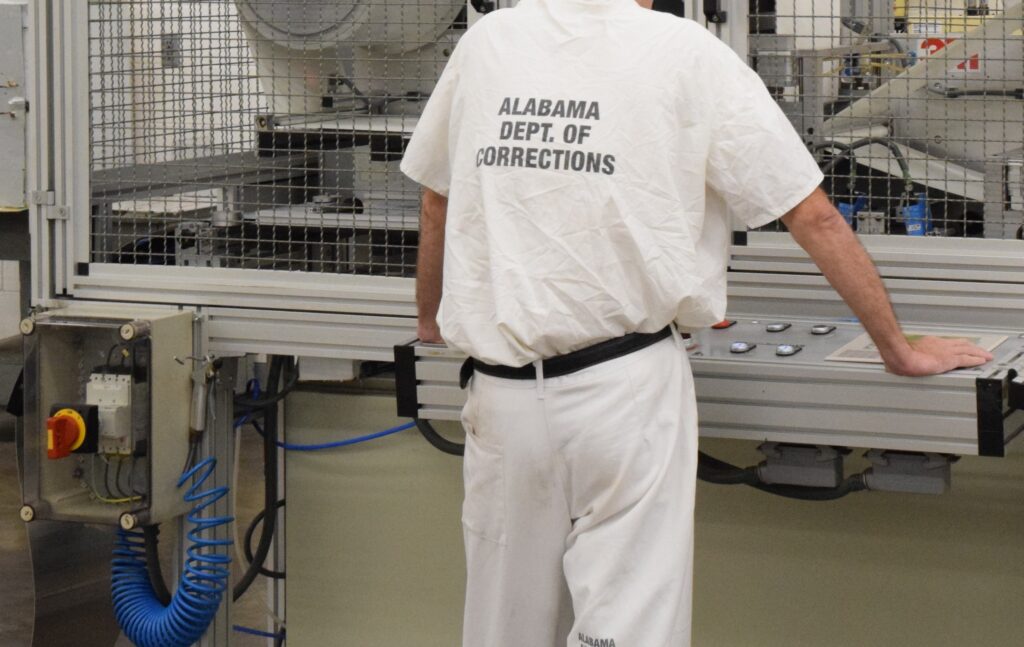
Alander Rocha, Alabama Reflector Alabama’s prison labor program system is a form of modern-day slavery, according to a 126-page lawsuit filed by former and currently incarcerated Alabamians, unions, and civil rights organizations on Tuesday morning. The lawsuit, filed in the U.S. District Court for the Middle District of Alabama in Montgomery, alleges that Alabama prison labor is sustained by punishing those who refuse to work or those who encourage other prisoners to refuse to work. It also accuses public and private entities, ranging from local governments to fast food restaurants and grocery stores, of benefitting from the labor. “They have been entrapped in a system of ‘convict leasing’ in which incarcerated people are forced to work, often for little or no money, for the ‘benefit of the numerous government entities and private businesses that ’employ them,’” the lawsuit alleged. The Alabama Department of Corrections said Tuesday it does not comment on ongoing litigation. The plaintiffs in the lawsuit — who include currently and formerly incarcerated Alabamians, three unions representing service industry employees, and the Woods Foundation, a civil rights organization — are asking the court to issue an injunction, ending Alabama’s current practice of “forced [prison] labor;” to release individuals qualified for parole; require the state to pay the plaintiffs what they earn through working in the prison system, as well as monetary damages to be determined at trial. Lakiera Walker, one of the plaintiffs in the lawsuit and paroled in 2023, said in a conference call Tuesday that she endured dreadful work conditions in the 15 that she was incarcerated at the Julia Tutwiler Prison and a work-release program in Birmingham when she was required to work outside of prison as a condition for her release. “I started working at a place called Southeastern Meats. It was a warehouse. It was a freezer. We would work from 2 p.m. to 2 a.m. — 12 hours a day — with no sufficient clothing is job,” she said. “Some days you were freezing, freezing cold between 30 and 40 degrees.” Walker alleges she was sexually harassed by her supervising officer, when she was working for Jefferson County doing road work from 2018 to 2020, making $2 a day. After reporting the incident, she was reprimanded for refusing to work and had to work additional hours. “So many women on the inside now that are afraid to speak out for fear of retaliation,” she said. “Those women they really need help. They really need a voice.” Janet Herold, legal director at Justice Catalyst Law and an attorney representing the plaintiffs, compared the current system to Alabama’s convict-leasing system, which ran from the 1870s to 1928. Under convict-leasing, private companies paid the state for uncompensated labor by state inmates, most of whom were Black, to work in degrading and often deadly conditions. The lawsuit claims Alabama made almost half a billion dollars from prison labor in 2023. “We’re not talking here today about a new Jim Crow; we’re talking here about the old Jim Crow,” Herold said. The lawsuit also alleged that the state grew these programs by favoring white over Black prisoners in parole decisions for release. It further alleges that the Alabama Board of Pardons and Paroles, which has sharply curtailed parole grants in recent years, has “unlawfully refused to release people from prison and further skewed the racial composition of the incarcerated population by wrongfully denying parole to thousands of Alabamians—and to Black Alabamians in particular.” A message seeking comment from the Alabama Board of Pardons and Paroles was left on Tuesday. The lawsuit alleged the parole board, under directions from Gov. Kay Ivey and Attorney General Steve Marshall, “has unlawfully refused to release people from prison and further skewed the racial composition of the incarcerated population by wrongfully denying parole to thousands of Alabamians—and to Black Alabamians in particular.” Ivey and Marshall’s offices did not return requests for comment on Tuesday. Alimireo English, a plaintiff currently incarcerated at the Ventress Correctional Facility, was denied parole in November. English said he has been forced to supervise a dorm of 190 incarcerated people, without any supervision from a correctional officer. English said in the conference call that he holds keys to gates and doors, works 12-14 hours a day, sometimes seven days a week, and is on call 24 hours a day. His work allows the administration to use their limited staff in more unstructured dorms, he said, or to give them days off for “employees who are themselves relying on the parole-ready inmates.” “Why would the slave master, by his own free will,” he asked, “release men on parole who aid and assist them in making their paid jobs easier and carefree?” Alabama Reflector is part of States Newsroom, a network of news bureaus supported by grants and a coalition of donors as a 501c(3) public charity. Alabama Reflector maintains editorial independence. Follow Alabama Reflector on Facebook and Twitter.


